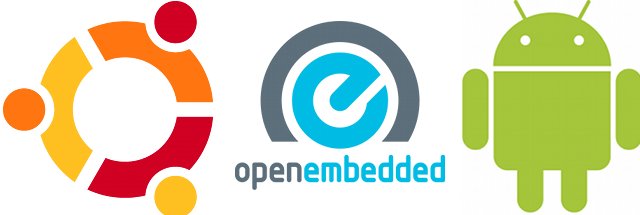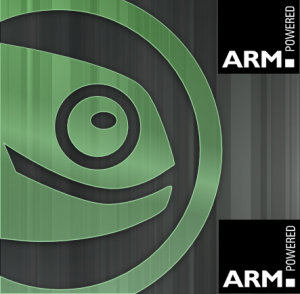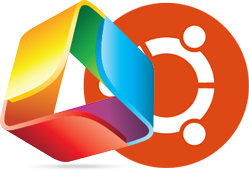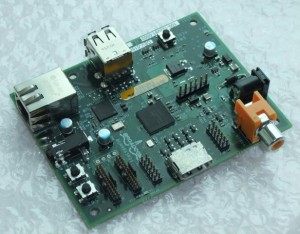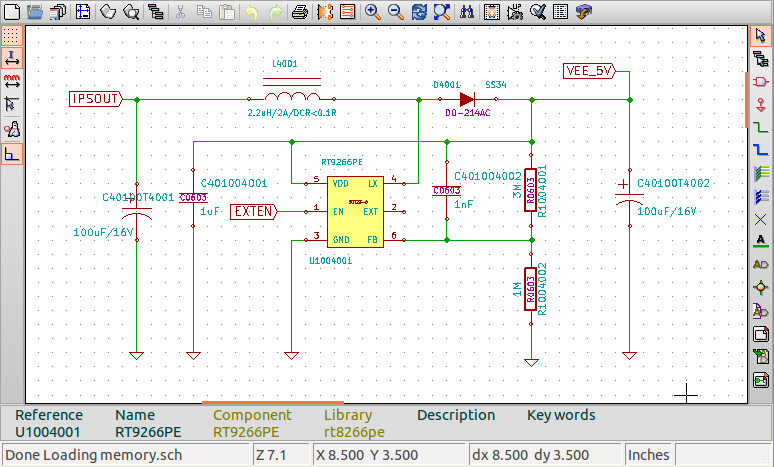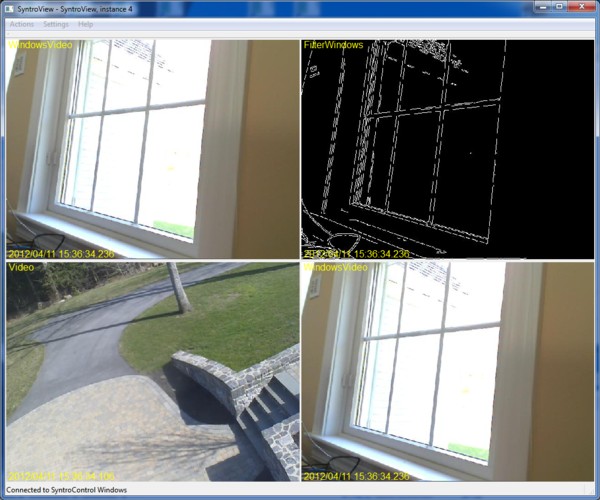Chris Simmonds, freelance consultant and trainer (2net ltd), discusses the future of embedded Linux now that storage and processing power are no longer an major issue, and try to find the best Linux platform for embedded systems at ELCE 2012. Abstract: Embedded Linux is at a cross roads where the combination of Moore’s law making devices more powerful and the mass production of consumer devices, especially mobile, making them cheaper means that the old ways no longer work. Only a few years ago we though in mega: MHz, MBytes, MBits/s. Now we have to think in giga. The days of the single core CPU are almost over, as are the days of the QVGA display. All this means that there is a need to re-think how embedded devices are programmed. Two obvious roads lie ahead: Android and Ubuntu (or other desktop operating system of your choice). This talk considers the […]
openSUSE 12.2 for ARM is Now Available for Beagleboard, Pandaboard, Efixa MX and More
The first stable release of openSUSE for ARM has just been announced. openSUSE 12.2 for ARM is officially available for the Beagleboard, Beagleboard xM, Pandaboard, Pandaboard ES, Versatile Express (QEMU) and the rootfs can be mounted with chroot, but “best effort’ ports have been made for Calxeda Highbank server, i.MX53 Loco development board, CuBox computer, Origen Board and Efika MX smart top. Work is also apparently being done on a Raspberry Pi port which should be available for the next release. openSUSE developers explains that almost all of openSUSE builds runs on these platforms (about 5000 packages). Visit “OpenSUSE on your ARM board” for download links and instructions for a specific ARM board. More details are available on the wiki page. openSUSE has limited resources for ARM development, so If you’d like to help with development (e.g. fixing builds), visit ARM distribution howto page to find out how to get […]
Rowboat Releases Android 4.1.1 Jelly Bean for Beagleboard-XM and Beaglebone
Rowboat announced a preliminary version of Android 4.1.1 (Jean Bean) for beagleboard and beaglebone platforms last week. These releases support SGX (3D graphics acceleration) on both Texas Instruments Sitara AM37x processor (Beagleboard-XM) and AM335x processor (Beaglebone), and all download and build instructions are available on their Wiki: Jellybean On Beagleboard JellybeanOn Beaglebone – Tested with LCD7 cape. If you could not care less about building it yourself, Rowboat provides pre-built binaries that you can install on a micro-SD card (4GB and greater) as follows : For Beagleboard-XM (DVI output):
|
1 2 3 4 |
curl http://rowboat.googlecode.com/files/beagleboard-xm-jb.tar.gz > beagleboard-xm-jb.tar.gz tar -zxvf beagleboard-xm-jb.tar.gz cd ~/beagleboard_xm-jb sudo ./mkmmc-android.sh <Your SD card device e.g:/dev/sdc> |
For Beaglebone (with 7″ LCD Cape):
|
1 2 3 4 |
curl http://rowboat.googlecode.com/files/beaglebone-jb.tar.gz > beaglebone-jb.tar.gz tar -zxvf beaglebone-jb.tar.gz cd ~/beaglebone-jb sudo ./mkmmc-android.sh <Your SD card device e.g:/dev/sdc> |
The full source is available on rowboat gitorious account, but there are lots of repo over there, so the best way to get the source is probably the “repo init” instructions in the 2 links above. Jean-Luc Aufranc (CNXSoft)Jean-Luc started CNX Software in 2010 as a part-time endeavor, before quitting his job as […]
Firefox OS Running on the Raspberry Pi
Oleg Romashin, a Nokia engineer, has been working on porting Firefox OS (previously known as Boot 2 Gecko) to the Raspberry Pi, and has uploaded a YouTube video showing a Firefox OS running on the device, including a WebGL teapot demo running at 60 fps. This Firefox OS build is based on Debian Squeezy, with plain EGL rendering, no Widget Toolkit backends and no X11. Some parts do not look very smooth yet, but this demo looks promising. If you want to try it yourself, you can download the WebGL teapot build. Mozilla patches with LinuxGL widget backend are also available at http://hg.mozilla.org/users/romaxa_gmail.com/embedipc_queue/file/linuxglpure. If you have the N9 smartphone or Beagleboard, it looks like you can also try this. Check files in http://romaxa.info/b2g/. Jean-Luc Aufranc (CNXSoft)Jean-Luc started CNX Software in 2010 as a part-time endeavor, before quitting his job as a software engineering manager, and starting to write daily news, and […]
Amahi 6.1 for Ubuntu 12.04 Released
Amahi has just announced the release of Amahi 6.1, Ubuntu Edition, an Home Digital Assistant (HDA). Amahi used to only work for Fedora and this is their very first stable release for Ubuntu 12.04. The key features of Amahi 6.1, Ubuntu Edition include: Greyhole 0.9 (storage pooling technology) Reliability fixes and updates New look Support for 32 / 64-bit Desktop and Server versions of Ubuntu Improved cloud storage with Amahi Sync Preliminary support ARM platforms such as PandaBoard and BeagleBoard One-Click App installs via Amahi’s application store If you want to get started with Amahi, you’ll have to register (and get an install code), and follow a few command line instructions. The instructions are the same to install on ARM platforms (assuming you already have Ubuntu 12.04 running), but Amahi developers recommend to install it to an hard drive instead of an SD card for performance reasons. They are also […]
List of 39 Low Cost Linux Friendly Boards and Products
Dmitry (omgfire), one of my awesome readers, compiled a great tabular list of Linux friendly boards and products that sells for less than $300 US (usually less than $200). This list includes technical details such as the processor, GPU, memory, NAND flash, connectivity, ports, supported Linux distributions… as well as availability and pricing information. There are currently 39 Linux devices in total. The vast majority are ARM based boards, but he also included 2 x86 products by VIA, but those are relatively pricey ($265 and up). Here’s a summary list with SoCs used, links to blog posts and product pages (if available), as well as price information. Raspberry Pi Model B – Broadcom BCM2835 (ARM11) – Blog post (That’s my first post about the R-Pi last year, and the board is much different now) – Product page – Price: $35 + shipping Rikomagic MK802 – Allwiner A10 (Cortex A8) – […]
Schematics Capture and PCB Layout in Linux with Kicad
Most schematics capture and PCB layout software run on Windows and are closed source. But if your favorite OS is Linux, there are a few open source software including Kicad and gEDA. There is also Cadsoft Eagle which can be installed in Linux with a free license for hobbyists and educational purposes, but is not open source. Today, I’ll focus on Kicad. I don’t really capture schematics, let alone layout PCBs, but I sometimes need to use this type of software to locate pins/components on the schematics and PCB and check some parts of the schematics that can affect software. So I will mainly give an overview of Kicad and write my experience trying to import another project (Beagleboard XM) to Kicad. If you want to learn how to get started with your own project with Kicad, you might want to have a look at Teho Labs Kicad Tutorial. In […]
Syntro 0.5.0 Cross-platform C++ Framework for Distributed Sensor Networks
Pansenti has announced the first release of Syntro (version 0.5.0), a cross-platform framework for creating distributed sensor networks. Syntro is an open source C++ library and a set of applications based on Qt 4.7. The source code is released under the GPL license. Syntro has been developed on the following platforms: Linux Fedora 16 Ubuntu >= 10.10 Mac OS 10.7 Windows 7 Syntro can run on x86 targets as well as ARM based Pandabord, Beagleboard and Beaglebone development boards (Ubuntu only). Syntro is based on the following “SyntroCore” applications: SyntroExec – Start up and management of Syntro apps. SyntroControl – Message switching and multicast distribution. SyntroStore – Multicast stream capture. SyntroCFS – Cloud file storage. SyntroReplay – Multicast stream generation. SyntroLog – Network-wide logging. Some demo applications using one or more webcams and the OpenCV library are also available: SyntroCamera – Capture a stream from a video device (such as […]


